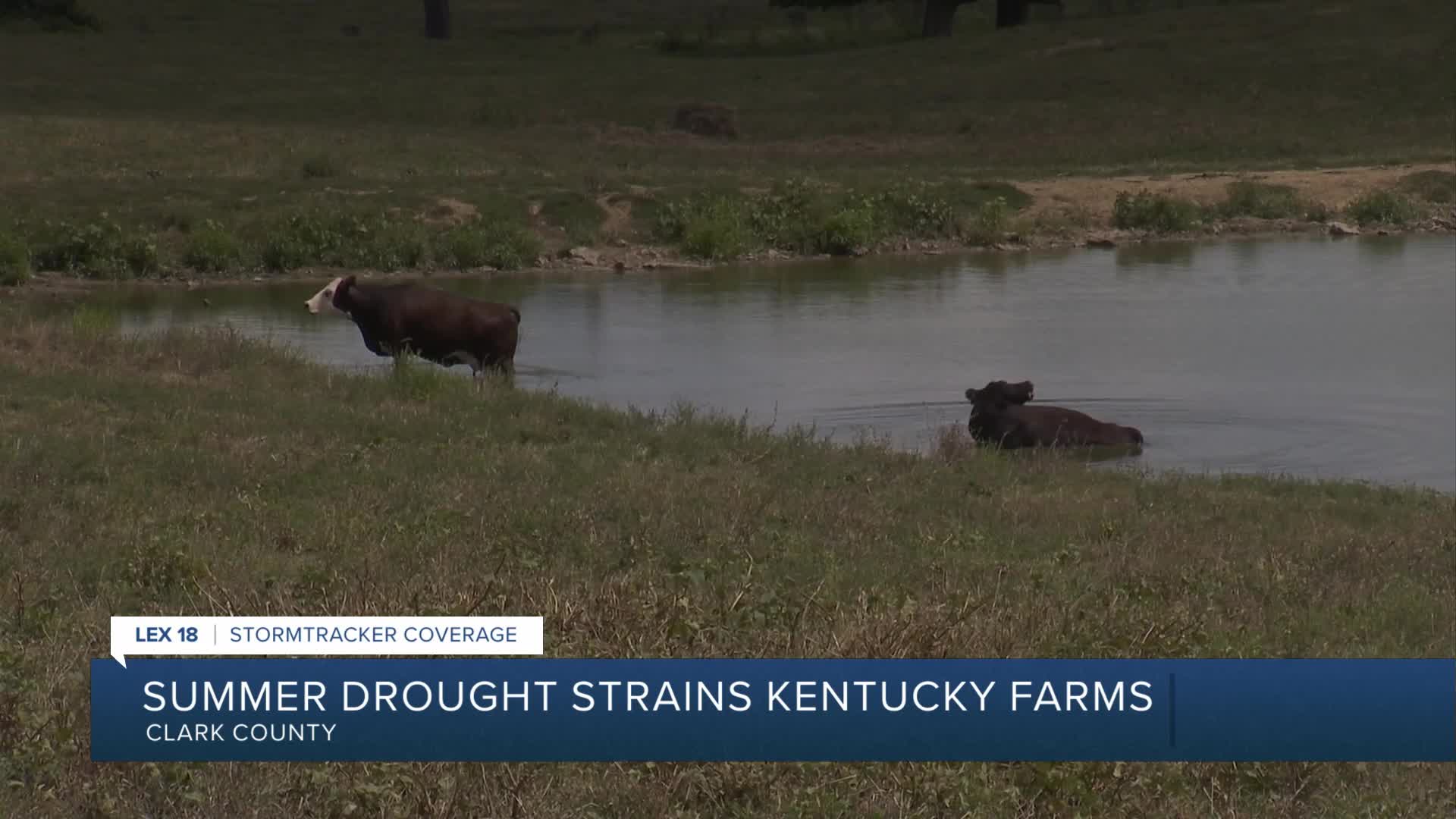CLARK COUNTY, Ky. (LEX 18) — Snowstorms in the winter, flooding in the spring, drought in the summer — it's a real Kentucky weather trifecta that's hitting farmers particularly hard this season.
Multi-generational cattle farmers like the Wisemans in Clark County are facing serious challenges as the summer sun holds on a little too tightly, creating conditions that threaten both livestock and crops.
"Now we're here and it's almost September, the water is gone, the creeks are dry, the grass is leaving, and we need rain very badly," said Marcus Wiseman, a fifth-generation farmer in Clark County.
While the ebbs and flows of farming are inevitable, this summer has been particularly tough, according to Wiseman. The farm hasn't had rain in a month and a half.
"The creek usually always has running water and there are deep holes where the cattle can cool off, just like you do in a swimming pool," Wiseman said. "But the trouble is, when the water stops running, the water becomes stagnant, so they're standing in pools and puddles of nasty feces and everything else."
While the Wisemans are fortunate to have a pond on their property, it's still not enough to meet their needs during this extended dry spell.
"So I've had to turn city water on which is an extra charge to the farmer, but it keeps the cattle healthy and drinking clean water every day," Wiseman said.
Without city water running through pipes across the farm, they would have to haul in water with trucks — a costly alternative that many farmers face. The expense is significant when considering that a single cow drinks up to 30 gallons of water per day on average.
The lack of moisture also creates additional health challenges for livestock.
"With the dry heat, it's also hard on their health," said Wiseman. "Their eyes, for example, pink eye is very common in cattle," Wiseman said.
It's not just livestock that's struggling. Row crops like corn and soybeans haven't yielded the quantity or quality farmers typically expect.
According to the U.S. Drought Monitor, the majority of Kentucky is considered "abnormally dry" and creeping toward moderate drought conditions.
For Wiseman, the additional costs and challenges are simply part of doing what he loves.
"When the good Lord takes away, you do what has to be done and pay what you have to pay to keep your cattle watered up," Wiseman said.





